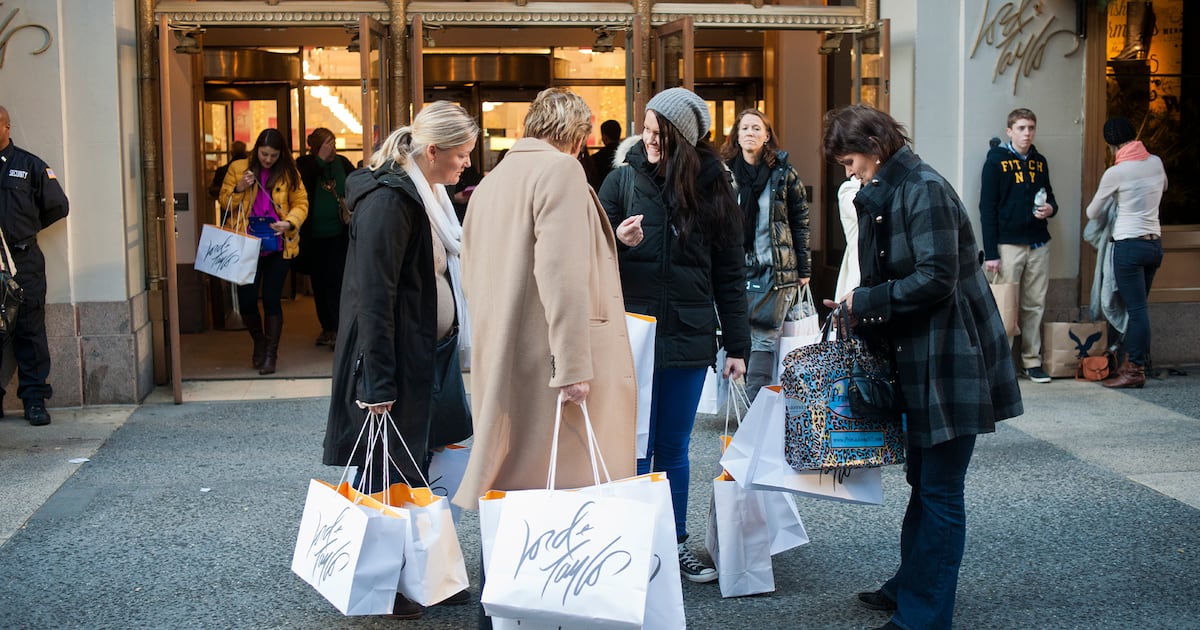The nearly 200-year-old department store Lord & Taylor is coming back to life, albeit with an entirely different business model.
Next year, the new owners of Lord & Taylor â an entity named Regal Brands Global â will unveil a website using the name of the storied retailer, and offer designer wares at discounted prices, BoF has learned. The inventory will be sourced from distributors.
The e-commerce store will also offer Lord & Taylor-branded products, which will be manufactured by licensees and sold at other retailers as well.
âMy idea is to put all these master manufacturers behind the brand to create many different products â womenswear, special occasion dresses, suiting, small leather goods, footwear, and many other categories,â said Sina Yenel, chief brand and strategy officer of Regal Brands Global.
In September, the name Lord & Taylor was purchased by a consortium of anonymous buyers under the entity of Regal Brands Global, which does not currently own any other brands or retailers. Earlier in 2024, Lord & Taylorâs previous owner, fashion holding company Saadia Group, shuttered its business and its assets were transferred to lenders.
Beyond licensing the Lord & Taylor name and launching the off-price online store, Regal Brands Global has no plans as of now to reenter the physical retail channel. The last Lord & Taylor location closed in 2021.
âWeâre leaving the brick-and-mortar game to those big players who are already on the market,â said Yenel, a textile and apparel professional. Instead, he said he hopes that the Lord & Taylor brand can be sold at stores like Saks Fifth Avenue and Nordstrom.
Lord & Taylor first opened in New York City in 1826 as a general store selling dry goods. It found a niche in the womenswear space throughout the 19th century, and the retailer expanded across the country in the post-World War II years. In 1983, Lord & Taylor was acquired by May Department Stores, which in 2005 merged with fellow department store conglomerate Federated to create Macyâs. The following year, the chain was purchased by real estate developer Richard Baker for $1.2 billion and became the foundation of his retail portfolio at Hudsonâs Bay Company, alongside Saks Fifth Avenue.
But by the 2010s, the department store sector began to falter amid shifting consumer behaviour and a wave of e-commerce disruption. Lord & Taylor was among the hardest hit, among other retailers that catered to the middle class consumer. In 2017, it made headlines with an unlikely partnership with Walmart, under which Lord & Taylor would open an online storefront under the banner of the big box chain.
In 2019, Baker offloaded Lord & Taylor to clothing rental startup Le Tote in a $100 million deal. At the time, Le Tote CEO Rakesh Tondon told BoF he was bullish on brick and mortar, and planned to expand Lord & Taylorâs 38-store footprint. These plans fell through in the wake of the Covid-19 pandemic, and in the following year, Le Tote filed for bankruptcy. Lord & Taylor announced in August 2020 it would liquidate all remaining stores.
Under Regal Brands, brick and mortar stores are not completely off the table, said Yenel.
The off-price and licensed fashion sectors, however, have been proven to be successful in recent years. Discount retailers such as TJ Maxx and Ross Stores have thrived as shoppers seek value in the face of aggressive inflation. Meanwhile, IP portfolio company Authentic Brands Group, valued at $20 billion last year, has demonstrated the lucrative prospects of buying ailing brands and licensing their names to various manufacturers and distributors.
Regal Brands Global has already signed on multiple licensees, according to Yenel, and is in talks with more. Lord & Taylor-branded products will hit the market in early 2025, he said.
âWeâre telling our licensees that weâre not limiting them on distribution,â Yenel added. âWe dictate the quality. Price points will vary but we donât want to be at the bottom.â

